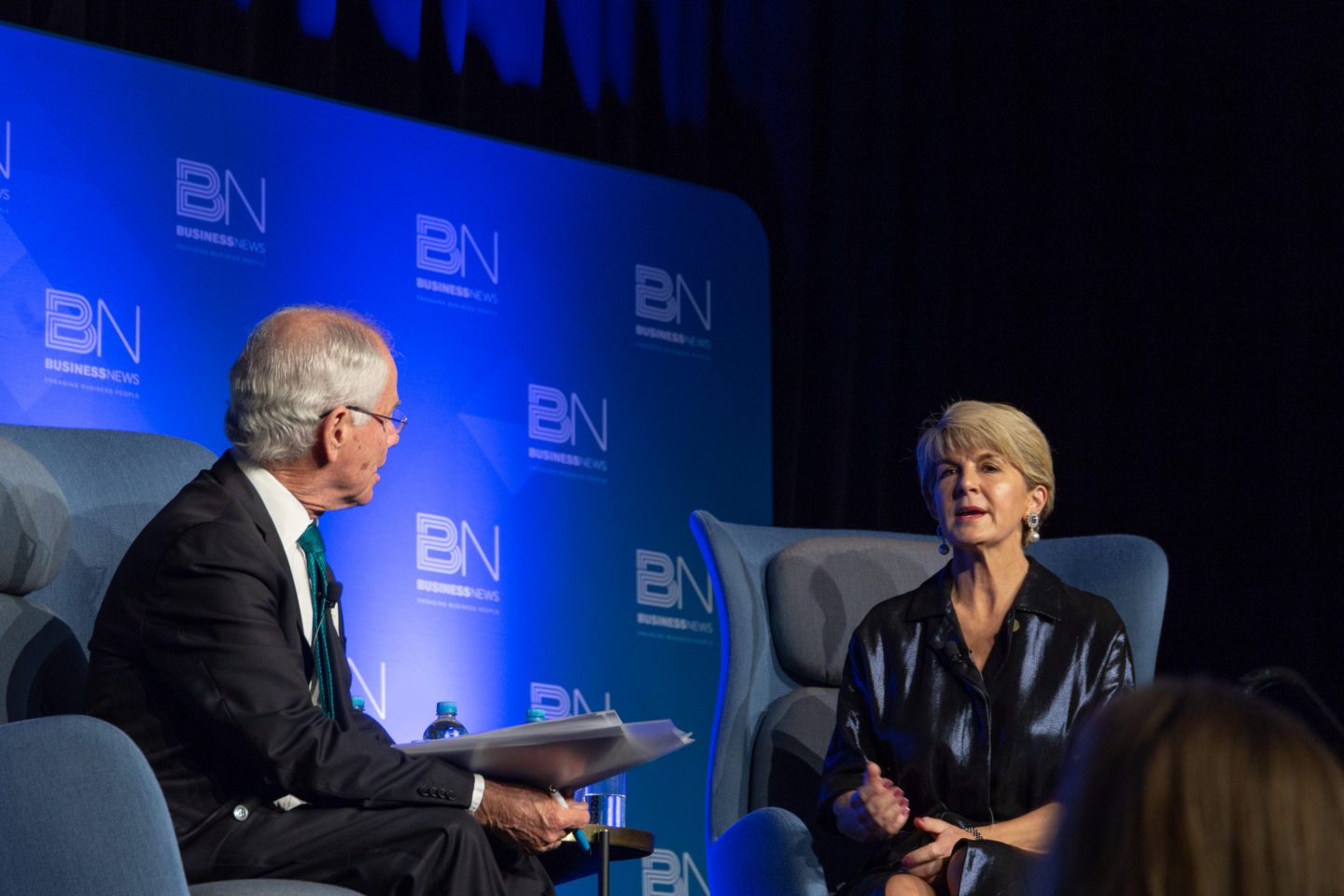Former foreign minister Julie Bishop has declared she is retiring from federal parliament at the next election, about six months after she left the role in the aftermath of a leadership spill.


Former foreign minister Julie Bishop has declared she is retiring from federal parliament at the next election, about six months after she left the role in the aftermath of a leadership spill.
Ms Bishop's political future has been under question since she decided against remaining in cabinet after Malcolm Turnbull was removed as prime minister in August 2018.
As recently as January she had maintained that she would continue to serve in parliament in the Electorate of Curtin, which includes the suburbs of Cottesloe, Nedlands and Churchlands.
There has been continued speculation who might run as the Liberal candidate in the seat if she were to leave, with Attorney General Christian Porter, who currently represents Pearce, and Finance Minister Mathias Cormann, a senator, occassionally touted as possibilities.
"I will not recontest the seat of Curtin at the next election," Ms Bishop said on Thursday, declaring she believed the government would win the coming poll.
Ms Bishop said a number of extraordinarily talented people had contacted her about running in the Western Australian seat if she decided to stand down.
"I will work hard in the meantime to assist a new Liberal candidate to win the seat," she said.
"It is time for a new member to take my place."
Ms Bishop thanked the prime ministers who chose her to serve as a minister - John Howard, Tony Abbott and Malcolm Turnbull.

Two decades of service
Ms Bishop has been the member for Curtin since 1998, and was Australia's first female foreign minister and deputy Liberal leader.
In 2003 she was appointed minister for ageing in the Howard government, while in 2006 to 2007 she served as minister for education.
After the Howard government lost office in 2007, Ms Bishop was elected deputy leader of the party, a position she held under Brendan Nelson, Malcolm Turnbull, Tony Abbott, and then again under Malcolm Turnbull.
She served as foreign minister from 2013 to 2018.
Her tenure included the signing of free trade deals with China, Japan and South Korea, the resurrection of the Trans-Pacific Partnership, work against ISIS and the aftermath of Malaysian Airlines flight 17.
That all earned her the accolade, from Mr Turnbull, as Australia's finest foreign minister.
When he was rolled as leader of the party in August, Ms Bishop contested the leadership but was the last of three candidates.

Reaction
Prime Minister Scott Morrison said Ms Bishop would have a place in the pantheon of Liberal Party history.
"Julie Bishop is a giant of the Liberal Party and she has been a ground breaker for women in public life," he said.
"Julie has been a good friend.
"I have valued her judgement, appreciated her insight and admired the tireless way she has served the Party, the parliament and Australia.
"On behalf of the government and the Liberal Party, I thank Julie for her great service to Australia for nearly two decades.
"There are many achievements from her time as foreign minister of which Julie can be proud – the New Colombo Plan, the establishment of the DFAT innovationXchange and strengthening Australia’s relations throughout the Pacific.
"However, I believe her greatest achievement was her work in the days after flight MH17 was brutally felled.
"Julie’s judgment, determination and energy helped secure a United Nations Security Council resolution that ensured Australia and its partners could repatriate the victims of that terrible crime.
"Australia has not forgotten those terrible days and still waits for the perpetrators of that crime to be brought to justice."
Opposition leader Bill Shorten was also positive.
"I think about her time as Foreign Minister after MH 17 was shot out of the skies," Mr Shorten said.
"Prime Minister Abbott will remember that very much, because of his fierce passion about that event and the terrible tragedy and murder that it was.
"I remember about that flight MH 17, not just the morning we gathered here in the chamber to learn the news, 38 Australian lives stolen."But a lot of it fell to her: the calm and composure and the kindness. I saw firsthand how she would show up for the families and it was real, it was authentic in that grief and bewilderment.
"I remember the service in Melbourne at St Patrick's and she was, she really was a leader.
"But I also saw her steely determination in international forums to help pursue justice and she was very strong.
"And on that regard, if any of us were ever to be privileged to be in the position that she was in, dealing with the Russians and other people I hope that any of us would show the same strength that she showed. That's to her everlasting credit."












